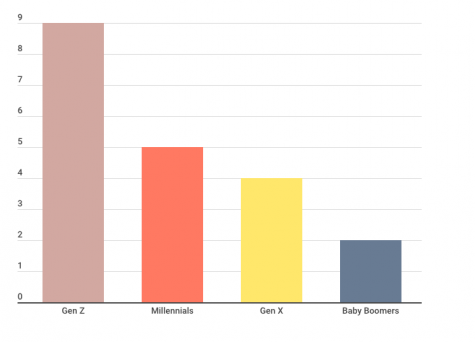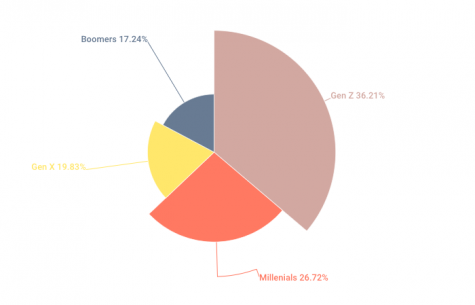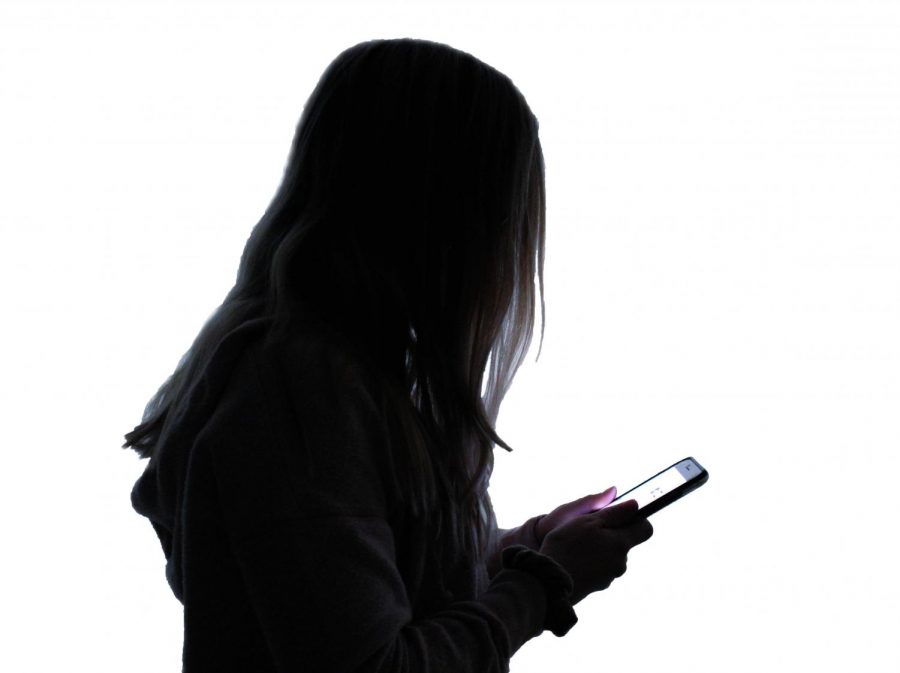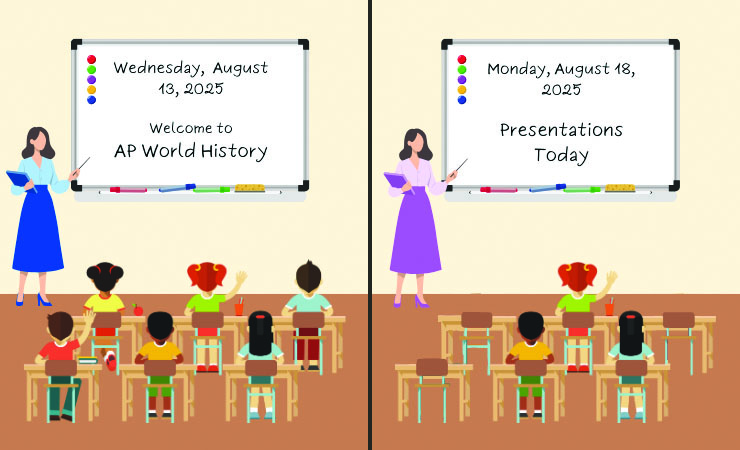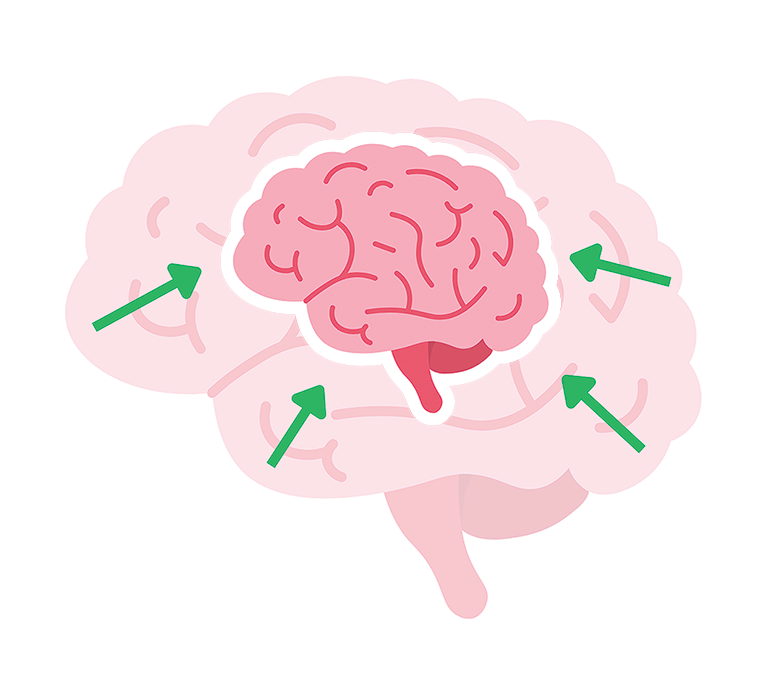Generation Z: The loneliest generation
Generation z is one like any other being completely immersed in social media, yet they are still struggling to find ways to stay connected.
March 18, 2019
Each generation leaves its mark. Baby boomers are known for being hard workers, Generation X is known as the middle-child generation, Millennials are known for being lazy and Generation Z is known for being lonely.
Loneliness has the same mortality rate as smoking 15 cigarettes a day, making it more dangerous than obesity. Cigna, a global health service company, recently conducted a health survey finding nearly half of Americans sometimes or always feel alone or left out. This alarming statistic has become a grim reality in this new age of technology, especially for Generation Z, the loneliest generation.
Gen Z’ers were born between 1995 and 2014, ages 5 to 24. Currently, all Southeast students fall under this generation and most can relate that these years can be a time period of confusion. It’s a time when they start to think about college, or have just started college. They are discovering themselves and finding out who they truly are. It can be a lot to take in in such a short amount of time, so it’s understandable that people in Gen Z are feeling lonely.
Douglas Nemecek, M.D., chief medical officer for Behavioral Health at Cigna, said that in order to understand why Gen Z is so lonely, we need to explore what is happening in their life at this moment.
Nemecek said in an email to CNBC, “We know that this is a group that is making life changes, but these findings give us a surprising understanding of how this generation perceives themselves.”
It’s no surprise that Gen Z bases how they perceive themselves off of social media. A land market report conducted by Common Sense Media, a non-profit organization that provides education and advocacy to families to promote safe technology and media for children, found that teenagers, ages 13-18, spend approximately nine hours on entertainment media a day. Entertainment media includes things such as television, social media and video games.
Junior Jianna Bond feels that social media influences how she perceives herself. She admits to spending about two hours a day on social media and that it does skew her perception a little bit.
“I would look at these [social media] influencers and [see] they are promoting these things, and I would be like ‘I really want to look like that’ or at least have that body shape because that is what would look best on me,” Bond said.
This insane amount of screen time can lead to Generation Z relying heavily on social media in regards to how they perceive themselves. According to a study conducted by The Center for Generational Kinetics, an organization that provides research and consulting services on generational challenges, 42% of Gen Z feels that social media has a direct impact on how they view themselves.
While many people in the older generations jump to the conclusion that Gen Z is lonely because of cell phones and social media, Cigna’s survey found that it isn’t necessarily the main contributor to loneliness. Those who admitted they use social media frequently had similar loneliness scores as those who said they have never used it.
One of the biggest factors that contributes to loneliness is the decline in face to face interaction. Half of the participants in the survey who rarely have in-person interactions are in poor overall physical and mental health. They are also less likely to live healthfully-balanced lives. They are getting less sleep and are spending less time with family than those who are socially active.
“I think [Generation Z is named the loneliest generation] because we don’t physically go out of our way to see people, all we need to do is call them to talk to them rather than going out to find out how they are,” Bond said.
Loneliness among Gen Z’ers has now reached epidemic levels and Southeast students are not immune. Just simply walking down the hallway during passing periods, one can see a crowd of heads slightly bent down, lit up with the blue hue from their cell phones. This generation was raised on technology, their childhoods caught in the transition from paper and pencil to desktop and keyboard. Being raised on these technological advancements developed a whole new generation unlike any other.
Gen Z is a technology-based culture centered around social media, television, video games and much more. According to an article on Generation Z from USA Today, young people in this group are developing the bad habit of focusing all of their social interaction on their phones instead of receiving face to face interaction. This development will not bode well for Gen Z because all of these habits will be carried with them throughout their entire lives, setting them up for failure in escaping loneliness.
Junior Gabe Rendel believes that a decrease in face to face interaction plays a role in loneliness as well. He said that deleting social media actually helped him feel less lonely because it made him have in-person conversations.
“Having face to face interaction with someone is satisfying because you not only get instant answers but there’s a level of connectivity with that person,” Rendel said. “Whereas if you’re using technology to communicate, I know that when I text people it becomes more of a burden than something that I want to do.”
The Cigna survey also found that having the right work and life balance can alleviate feelings of loneliness, with those working less feeling lonelier than those working more. While having a job can be considered a burden for some Southeast students, maintaining one could possibly help reduce feelings of loneliness.
“I would say having a job makes me less lonely because the time spent at my job I would probably be sleeping so [having a job helps me] make new acquaintances,” Rendel said.
While the name “loneliest generation” sounds heavy and irreversible, there are ways to combat these feelings of loneliness. Finding the right balance of sleep, exercise, social life and alone time can help alleviate loneliness. It’s all about doing activities that include personal interactions.
Even though it may seem impossible, escaping loneliness is achievable for the people in Generation Z. One small life adjustment can easily relieve those feelings. Putting down the phone and making human interactions and personal connections with others can immensely aid in the decrease of loneliness. With Valentine’s Day quickly approaching, it’s not difficult to let lonely feelings overpower, but implementing the healthy balance of school, work, sports, a social life or any other activity will decrease loneliness by increasing face to face interaction.
